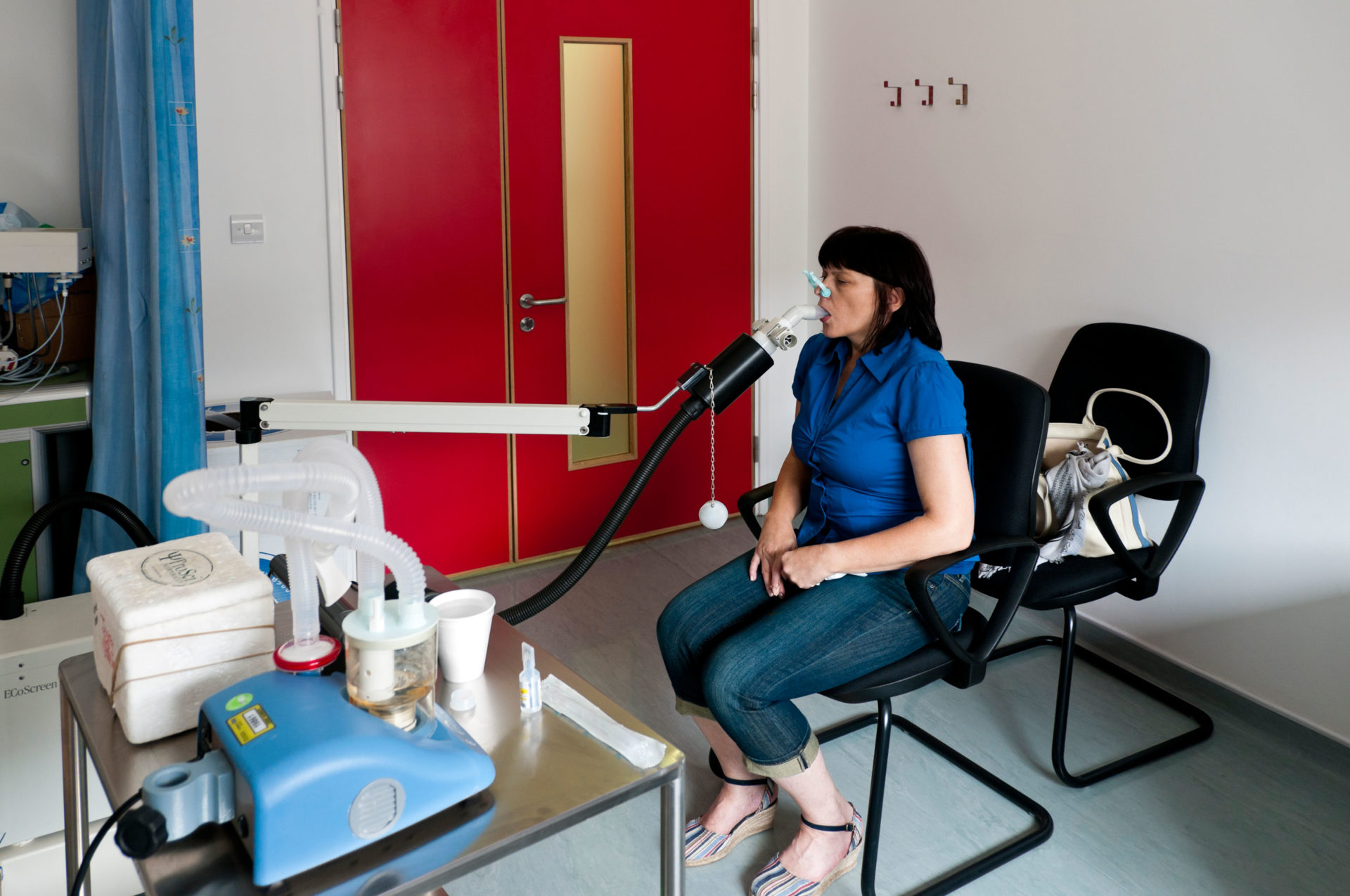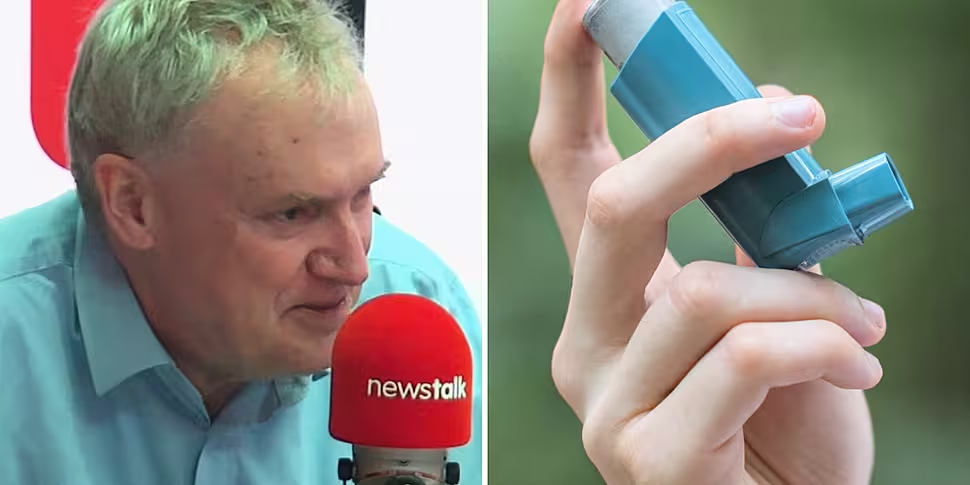The first new treatment for asthma in 50 years has been developed with “dramatic effects” for those afflicted, Luke O’Neill has said.
The new drug, Benralizamab, is a monotone antibody that targets specific white blood cells, called eosinophils, to reduce lung inflammation.
While treatments for asthma are available, severe cases can be lethal, and are often treated with steroids - which can have adverse side effects.
Benralizamab could see the need for steroids in asthma patients ruled defunct.
On The Pat Kenny Show, Professor Luke O’Neill said the trials for the new drug has “shown wonderful effects in severe asthma and also in chronic obstructive pulmonary disease (COPD)”.
 Person using an Ivax Reliever inhaler for the treatment of asthma. 07/01/15 Image: Alamy
Person using an Ivax Reliever inhaler for the treatment of asthma. 07/01/15 Image: AlamyThe new treatment was already an existing approved drug - but is now being trialled for a new purpose.
“Asthma comes in different flavours, if you will,” he said.
“There's one called eosinophilic asthma… and this drug targets eosinophils."
Eosinophilic asthma is a type of asthma caused by high levels of white blood cells called eosinophils in the airways of the lungs.
“It was approved for eosinophilic asthma already but more importantly, this was a [new] trial on people in hospital with a severe asthma attack, and they were given a huge shot of this stuff," Prof O'Neill said.
“They were given a high dose of it, and lo and behold, a much more dramatic effect.”
Benefits
Prof O’Neill said this new drug has also been proven to help COPD.
“More importantly COPD - chronic obstructive pulmonary disease; a very serious lung disease with not many treatments - it worked in that group as well,” he said.
“So here we see two diseases now where this drug can actually be beneficial.”
 Woman being tested for COPD. Image: Alamy
Woman being tested for COPD. Image: AlamyThis new drug can help longer term with repeat bouts of bad asthma, Prof O’Neill said.
“If you were given [benralizamab] you were less likely to go back to your doctor again,” he said.
“Often you have asthma, you get over it, you go back again to your doctor.
“The ones who were treated, it persisted - the therapeutic effect went on for a lot longer.”
With almost “3.8 million deaths a year from asthma”, Prof O’Neill hopes this new drug will help to reduce the effects of this illness.
Main image: Split image showing Luke O'Neill (L) and an inhaler (R)









